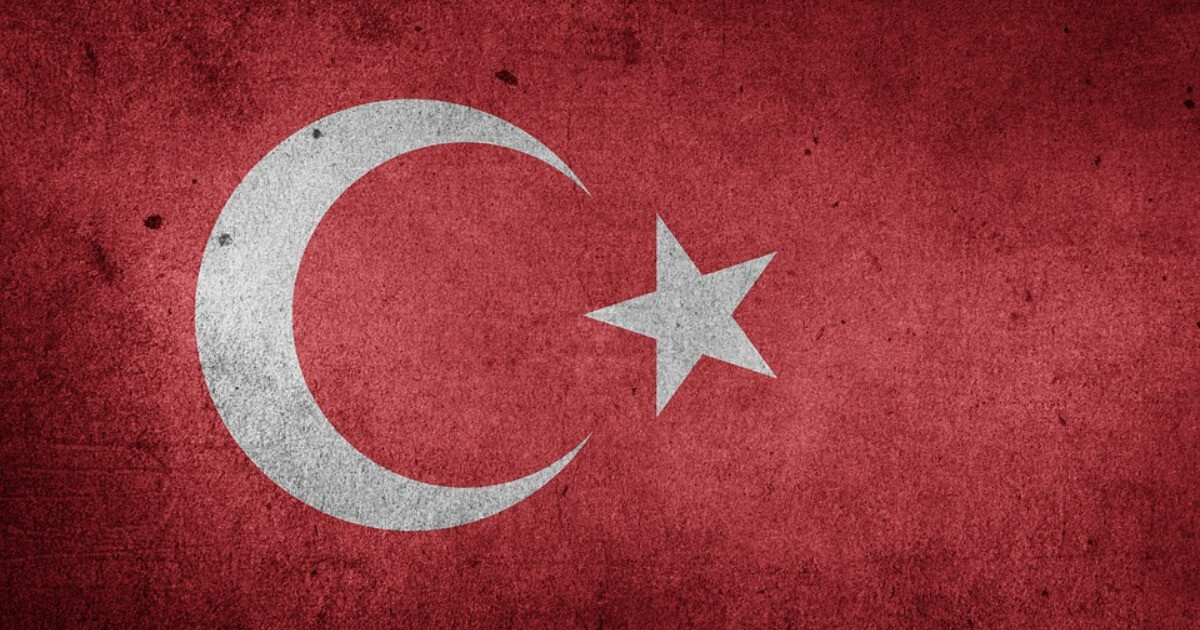The Radicalism of Turkish, Not Saudi, Schoolbooks
Mr. Erdogan’s actions at home undermine any suggestion that he is adhering to values projected by Europe and U.S. President Joe Biden.
March 21, 2021

Once upon a time, Turkey was a model of secularism with an education system that taught evolution, cultural openness and tolerance towards minorities that included Kurdish as a minority language.
Nowadays, Turkish curricula have increasingly replaced those concepts with notions of jihad, martyrdom in battle and a neo-Ottoman and pan-Turkist ethno-religious worldview, according to a just released analysis of 28 textbooks.
The report by the Institute for Monitoring Peace and Cultural Tolerance in School Education (Impact-se), an Israeli research group, and the Henry Jackson Society in Britain, assessed recent curricula.
The report asserts that Turkish curricula now display “sympathy for the motivations of ISIS and Al-Qaeda,” focus exclusively on Sunni Muslim teachings and replace electives such as Kurdish with religious courses.
That is an astounding development for a country that is a member of NATO and that has long aspired for European Union membership, include anti-American and anti-Armenian attitudes.
In the cloak of Sharia
The textbooks promote concepts such as “Turkish World Domination” and the Turkish or Ottoman “Ideal of the World Order,” the report said.
“Education is a prime pillar in (President Recep Tayyip) Erdogan’s efforts to drape the country in the cloak of Sharia… The Ministry of Education has been pressuring citizens to conform to conservative Islamic practices in public schools,” commented Turkey scholar Soner Cagaptay in a foreword to the study.
Repairing relations with Europe?
The study was released as Turkey was attempting to repair relations with Europe and Middle Eastern states, including Egypt, Saudi Arabia, the United Arab Emirates and Israel.
These relations have been bruised by Turkey’s aggressive assertiveness in Libya, Syria, the Caucasus and the Eastern Mediterranean.
Wobbly EU?
To advance his case, Mr. Erdogan spoke just recently in a video conference to European Council President Charles Michel and European Commission President Ursula von der Leyen in advance of the upcoming European summit that is scheduled to discuss relations with Turkey.
The video conference took place a day after the EU shelved plans to blacklist senior executives of Turkey’s state-owned Turkish Petroleum Corporation (TPAO) in retaliation for Turkish drilling for natural gas in disputed waters in the eastern Mediterranean.
Erdogan’s path
The report is likely to add to skepticism about an 11-point human rights action plan unveiled by Mr. Erdogan earlier this month that he said would bolster freedoms and legal protections.
Mr. Erdogan has undermined freedom of the press and the independence of the judiciary and arrested thousands on often flimsy charges since he defeated a failed military coup in 2016. As a result, Turkey ranks today as one of the world’s foremost jailers of journalists.
Disenfranchising all Kurds?
In mid-March, Turkish police detained several officials of the pro-Kurdish Peoples’ Democratic Party (HDP), days after a top public prosecutor demanded the party’s dissolution for alleged links to Kurdish nationalist militants.
This is an astonishing move, especially considering that Kurds are believed to account for 15-20% of the Turkish population. Parliament this week also expelled an HDP deputy.
Washington’s cold shoulder
All of this undermines Mr. Erdogan’s effort to suggest that he is adhering to values projected by Europe and US President Joe Biden.
Mr. Biden, since coming to office in January, has kept Mr. Erdogan in limbo by refraining to give him the customary head-of-government call. White House press secretary Jen Psaki said last week that Mr. Biden would call Mr. Erdogan “at some point.”
Adhering to which values?
Critics link the backslide in Turkish schoolbooks to Mr. Erdogan’s Islamist inclinations and support for the Muslim Brotherhood that has found a home in Istanbul since Egypt’s brutal crackdown on the group in 2013.
The fact that Turkey cautioned Brotherhood figures and the group’s Istanbul-based media to tone down their rhetoric was going to do little to convince them as well as Egypt, Gulf states and Israel that the leopard was changing its spots.
Erdogan is stuck
Mr. Erdogan is walking a fine line. His efforts to patch up differences with his detractors threaten to undermine his claim to leadership of the Muslim world in competition with Saudi Arabia, the UAE, Iran and Indonesia.
Mr. Erdogan’s projection of himself as the primary defender of Islamic causes has garnered him significant street credibility in various Muslim-majority countries.
The reorientation of Turkey’s curriculum serves his aim of raising a “pious generation” at home as well as his positioning of Turkey internationally.
Yet, references in Turkish schoolbooks to Jews and Christians as infidels rather than the common reference, “People of the Book,” may go down well with segments of Muslim public opinion. At the same time, they call into question his efforts to dial down the rhetoric and appear more cooperative and constructive.
Arab Gulf countries doing better by comparison
The fact of the matter is that the Turkish textbooks, despite positive references to Hebrew, Jewish civilization and, for the first time, the Holocaust, contrast starkly with the latest, reformed curricula in Saudi Arabia and the UAE as well as efforts by Indonesia’s Nahdlatul Ulama, the world’s largest Muslim civil society movement. They manage to remove legal categories such as “infidels” from the faith’s jurisprudence.
The contrast with Saudi Arabia is particularly stark given that improvements in Saudi textbooks are the one bright spot in the kingdom’s otherwise tarnished effort to portray itself as a moderate and tolerant Muslim leader.
Saudi Arabia needs to do a great deal more to put ultra-conservative, supremacist concepts behind it and embrace human rights and the rule of law.
Takeaways
In a sign of the times, Turkish schoolbooks have replaced Saudi texts as the bull’s eye of criticism of supremacist and intolerant curricula in the Muslim world.
Turkish curricula now display sympathy for the motivations of ISIS and Al-Qaeda, focus exclusively on Sunni Muslim teachings and replace electives such as Kurdish with religious courses.
Erdogan has undermined freedom of the press and the independence of the judiciary. Turkey ranks today as one of the world’s foremost jailers of journalists.

